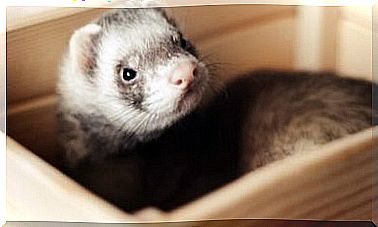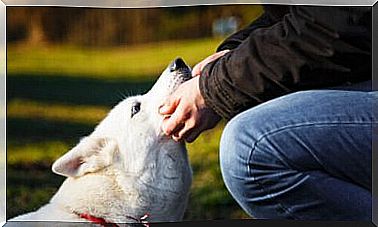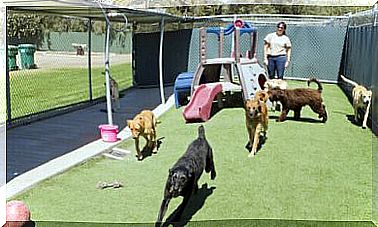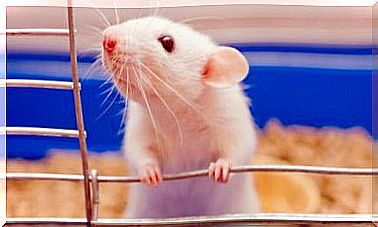Why Do Horses Neigh?
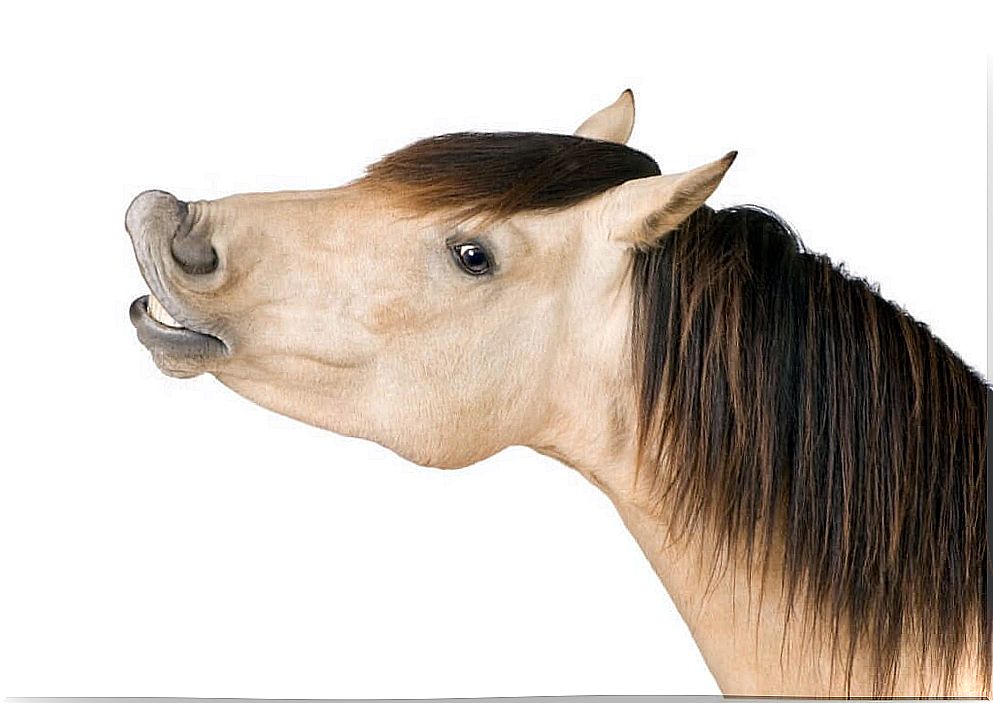
It’s not just humans who make use of their vocal cords and facial muscles to convey messages. Many other animals communicate and do so in surprising ways. In the case of horses, they also use different communication mechanisms, but have you ever wondered why horses neigh?
It is common to hear these animals sighing, screaming, roaring, snorting and whinnying. His speech repertoire is absurd, and because of that, it can sometimes be difficult to decipher what a horse is trying to say with its fuss. So here we invite you to find out why horses neigh.
How do horses communicate with each other?
Among the communication mechanisms of horses are smell, contact, body language, facial expressions, tail movements and oral communication, which is very context-dependent. Experts on the subject claim that, through neighing, snorting and other oral manifestations, horses express an emotional state.
However, according to German riders Reiner Klimke and Ingrid Klimke, not all horses use their voices in the same way. Some hardly ever vocalize, while others greet every horse they see with a thunderous whinny. Horses have a very marked personality, so it is to be expected that not all of them behave in the same way.
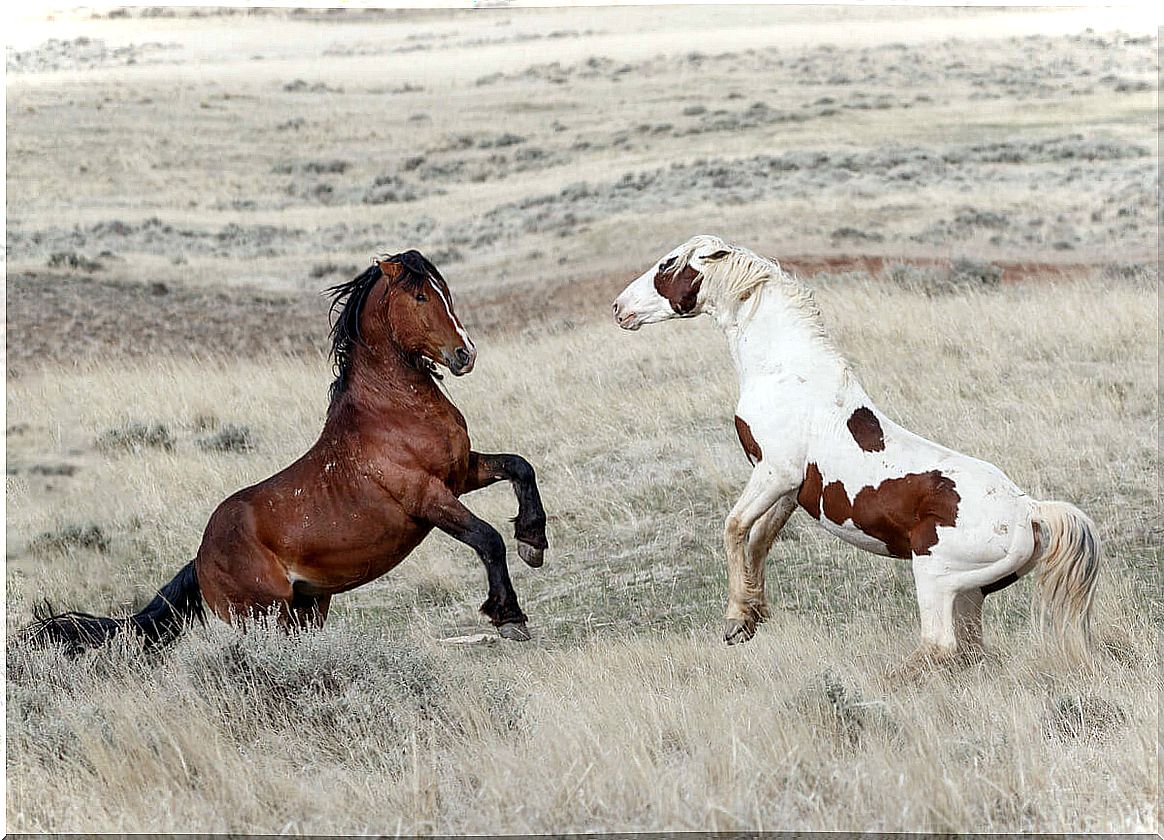
The emotions in horses
Did you know that some horses can be scared when they see a shadow or when entering dark places? Some are even afraid of noises like the whistle of the wind. Other horses need to get used to the presence of people in order not to be afraid, because, as they are prey, they have the flight instinct encoded in their genome.
The emotions horses feel influence the social relationships generated between them. However, the great richness of this emotional world makes them curious about everything that is new, so it is normal for them to investigate after feeling some fear.
These animals are not by chance curious, as they display this quality because of their instinct to explore the world in search of water, food, shelter and more companions. On the other hand, they have also developed strategies to detect danger signs and act on news or fast movements, which make them flee.
Why do horses neigh?
The whinnying is one of the most familiar sounds of horses and one of the longest and loudest, although the tone depends on the intensity of communication. When you hear a horse neighing, it could be for one of the following reasons:
- The animal wants to convey its location to the rest of the group, if separated.
- You are trying to communicate a danger close to another horse or human.
- You want to welcome someone you haven’t seen in a long time.
- It’s showing affection.
- He is very happy, especially if the whinny is accompanied by a non-threatening tapping of the forepaws on the ground.
Also, it is quite normal for young horses to respond to others when they neigh and to neigh profusely when they see their food coming. Regardless of the reason for the sound, most neighs last about 1.5 seconds and are powerful enough to be heard almost a mile away.
Experts say that, contrary to what the general population tends to believe, whinnying is not induced by fear. Instead, it can be a request or a statement of information, in which the ears are usually raised forward, the neck is stretched up and the tail is positioned slightly raised.
Why do they snort?
The snorting of horses is another sound we hear most, but unlike whinnying, it can be associated with feelings of alertness or frustration. The horse snorts, for example, if its stomach is hurting, if it wants to take a break, or if it needs to slow down while it is being ridden.
However, this sound can also mean that the horse is happy and relaxed. Therefore, it is important to distinguish the snorts that the horse releases when it is tense or excited, as the animal can also exhale in long sighs, as in a relaxed state.
For a long time, it was also believed that the reason horses snorted was to expel phlegm, flies or objects from the nostrils. However, the study An unexpected acoustic indicator of positive emotions in horses ( An unexpected acoustic indicator of positive emotions in horses ), published in PLOS ONE magazine, revealed that horses snort when they are happy.
Based on this premise, the researchers noted the following: horses that stayed indoors and were fed low-fiber meals snorted much less than those that lived free, with full availability of hay and pasture. In other words, the less stress the animal is, the more it huffs.
Communication between horses and humans
Studies say that, in interactions between horses and humans, conflicts sometimes occur. This can be avoided if you know the animal’s body signals, facial expressions, voice sounds and emotions.
Therefore, recognizing the horse’s language helps to interpret what the animal wants to communicate. Whether you are in frequent contact with horses or simply want to learn more about them, knowing the communication guidelines for these animals is very enriching.
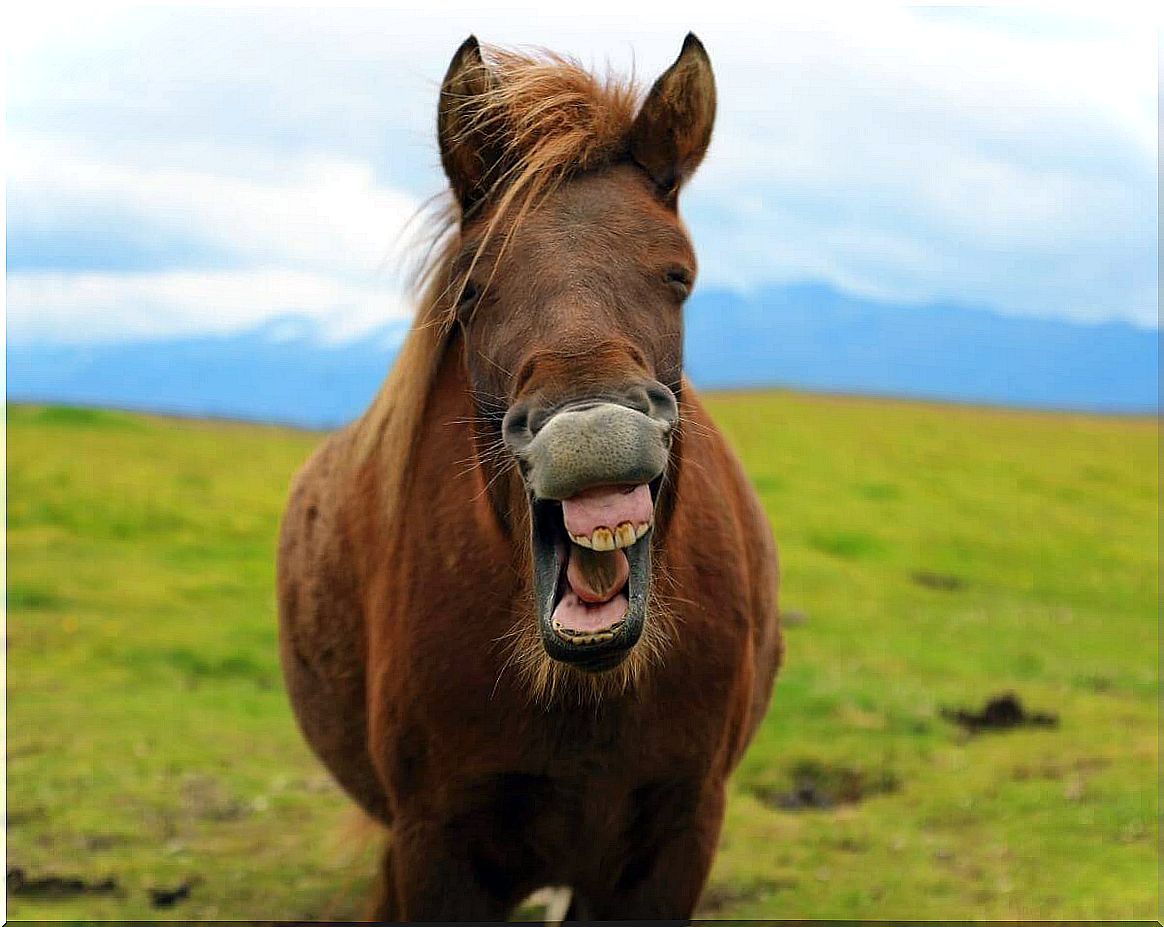
It is essential to study and observe the ways in which horses communicate in order to create good bonds and deepen the knowledge of their biology. Remember: it’s not just about riding a horse, the key is to respect the animal. Although some people think of horses as pack animals, they are beings with feelings, emotions and a personality worth knowing.
